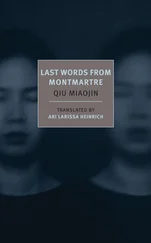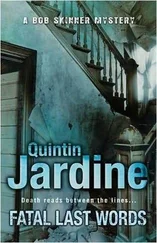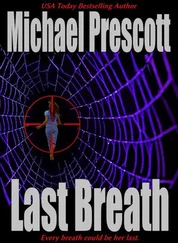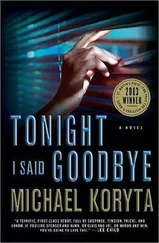Sit down there in the dark
— visit the crime scene. That was obvious; it was fundamental.
There was a locked gate blocking the entrance to the property, and he left the rental car parked outside and walked around the gate and down the drive, his feet crunching on the snow. Not much of it covered the ground, only a couple of inches, and today the sun was brilliant and the snow crystals sparkled like white sand.
When he was about a tenth of a mile past the gate, two buildings came into view: a log home with wide windows and multiple decks and, about fifty yards from that, a large garage. Just below was a creek, the water iced over and shining. An ornate iron footbridge crossed the water, going from the house and the garage to a wall of stone that wouldn’t have drawn Mark’s eye if not for the part of it that didn’t belong — a set of iron bars like an ancient prison door. When he got closer, he saw that it actually was a door. Padlocked.
That would be the cave entrance.
He walked as far as the footbridge but didn’t cross it. Just stood there and looked at the cave waiting beyond it.
You should go down there and think about your wife, and then make up your mind.
As he looked at the creek he found himself wincing. The glare of the sun on the snow-covered ice was too bright. Across from it and beyond those iron bars, the darkness looked welcoming. Above, the stone faded into a steep slope lined with saplings, and up on top, the ground flattened out and ran off into open fields. He could see horses, their heads surrounded by fogs of warm breath that sat in the still air. One of them whinnied, a soft sound across the distance, but it still made Mark’s eyes close involuntarily.
He’d grown up around that sound. Different towns, different states, but always horses. Traveling with his uncles and his mother, staying in a place until one or the other of them got into enough trouble that they had to move on. There were always jobs to be found if you were good with horses, though, and his uncles had been good. There was a time, long ago, that he had been too.
People thought that his uncles were plagued by alcoholism and anger, but Mark believed they were really plagued by family. Their sister, his mother, in particular. They kept looking out for her when they shouldn’t have, refusing to give up on her. While his uncles had their faults, his mother was the only real con in the family. She had not a trace of Native American blood, but she’d tan her already dark complexion, dye her hair raven black, and braid it, weaving feathers into the braids. Then she’d announce herself as a great-great-granddaughter of either Looking Glass or White Bird, Nez Perce chiefs who had participated in the epic flight through the Rockies, struggling to reach Canada, only to be stopped, exhausted and starving, twenty miles from the border. She’d learned early on that Chief Joseph was a touch too famous, and there was the chance that a tourist might know more about him than she did, so she’d given up being his imaginary relation and chosen the lesser-known chiefs. Broadcasting her heritage as a spiritualist with great medicine powers, she would sell dream catchers and offer psychic readings and faith healings.
What money she made — and some summers she did quite well — went to bottles or, in the worst of times, needles. Mark and his uncles would have to track her down and bring her back to whatever was currently home. As Mark grew older, he began to dream of running away. Running south, to the land of palm trees and blue water.
He’d been seventeen when he finally left, even though one uncle was dead and one was in jail and there was nobody else to watch over Snow Creek Maiden, but it was a while before he made it to the palms and beaches of his dreams. For some years, he kicked around the West in the same tired circles he’d always known, taking jobs as a rafting guide, a stable hand, doing grunt labor for a hunting outfitter, tending bar for snowmobilers, whatever paid. Eventually he saved enough to head south with a small cushion. He’d been working night shifts at gas stations around Sarasota for a year before he got a job as a deckhand on a diving boat. He was fascinated by the idea of diving but couldn’t afford the lessons and was hesitant to ask his boss for a discounted rate. It was his boss’s daughter, Lauren, who offered him that first lesson. She had a small build and looked overmatched by the scuba gear but moved in the water as if she belonged to it. The first time he’d seen her, she’d been working her way up to the surface, graceful and gorgeous, her blond hair fanned out in the turquoise depths.
He put his hand in his pocket now and found the plastic disk that had been Lauren’s permit on that first trip together, the sentimental touch he’d never been able to show her on that deck on Siesta Key. There were moments when he could close his eyes and see the stern of the boat from Saba National Marine Park at sunset, the two of them sitting close but not quite touching, not yet. But soon. And by the end of that year, he’d gotten into what was then St. Petersburg Junior College, just a few hours away from where she was studying in Gainesville. Two years later he was in Gainesville too. Lauren had an internship with Jeff London. Mark had never heard anyone talk about his work with the passion Jeff demonstrated, and the idea of it, of cell doors opening for people who’d never belonged behind bars, was compelling. Truth be told, though, Mark hadn’t joined up because of Jeff’s passion. He’d joined because of Lauren’s. Because he wanted to catch some of the glow that radiated from her when she talked about Innocence Incorporated.
He was good at it too. Better than anyone had expected, certainly better than he’d expected. The investigative work came naturally. He could be both patient and instinctive, Jeff said, a magical blend. Mark didn’t know about that, but he knew he enjoyed the work. The idea that someone was waiting to die for the sins of another and that one piece of undiscovered evidence might free him was not a job you could tire of. It had seemed righteous to him. Back then.
The land of palm trees and blue water had treated him well indeed. It had been the paradise he’d known it would be, full of warm welcomes and soft edges, a place where cold pain and shame would never find him. He’d almost come to believe that before Lauren made the drive to Cassadaga.
“ Hey! Closed property, pal! Can you not read the signs or do you just not give a shit what they say?”
The Florida memories were gone then and ice-covered Indiana was back and Mark turned and saw a tall black man in a knit hat and an untucked, half-buttoned shirt rushing toward him from the garage.
“Signs hang on that gate for a reason, you know. Hell, the gate is there for a reason! But you folks don’t care, the world’s your damned oyster, you just do as you please...”
He was walking nearly as fast as he was bitching, but it was a tight race. Mark waited until the man pulled up close and then he said, “I walked down for a look. I’m sorry.”
“That’s just the thing! That is just the thing that I mean. The signs and the gate are supposed to tell you that you can’t have a look! But people just do whatever the hell it is they please anymore. I don’t know when it became that way, I honest to God don’t. But there was a shift. There was a change.”
“Manners are lacking,” Mark said. “Common courtesy is a thing of the past.”
“You are f’ing-A right about that,” the man said. He seemed to be softening now that Mark had agreed with him that the world was in social decline, and he paused to finish buttoning his shirt. He was knotted with muscle and had thick wrists and a mechanic’s forearms. His face was hawkish and angular, like it had been built for cutting through the wind, and a perpetual squint added to the effect.
Читать дальше












